On the face of it, Emma Sky was not an obvious candidate to send to Iraq in the immediate aftermath of the war. She had never been to the country before, and had opposed the coalition's invasion. She had only been to the US once and was instinctively suspicious of the military, perhaps especially the US military.
Yet on Friday, 20 June 2003 , two months after the war began, Sky boarded a flight from RAF Brize Norton, the only woman among 200 soldiers, and headed into the 50C heat and post-conflict chaos of Basra, the city in the south where the British were based.
Two weeks earlier she had been working as an international development adviser for the British Council in Manchester; now she found herself in charge of one of the most volatile regions in Iraq. The journey from north-west England to north-east Iraq owed a lot to fortune, her determination, and some barely scriptable coincidences. But Sky is the first to concede the random nature of her appointment reflected much broader failures in planning and strategy that would ultimately draw the country into a civil war.
Into the breach
Nobody's ingenue, Sky was certainly used to operating in difficult environments; an Arabist, she had spent 10 years working in Gaza and the West Bank before returning to the UK with the British Council to advise countries in Africa, Asia and south America, on issues such as human rights and governance. When the Foreign Office asked for volunteers to go to Iraq to help with the reconstruction effort, a friend in the civil service prompted Sky to apply.
"I was against the war and I had this idea that I was going to go out to Iraq and apologise to the Iraqis for the invasion, and everything they had experienced, and I would do whatever I could to help them get back on their feet." A few days and one short phone call later, Sky was told to report to the military air base in Oxfordshire. The Foreign Office did not give her a formal interview or briefing before she left, and she was given no detailed instructions about what to do when she landed. "I had a phone call from someone in the Foreign Office. It wasn't a long conversation. They said 'you've spent a lot of time in the Middle East, you'll be fine'. I was told that there would be someone at the airport waiting for me, carrying a card with my name. When I got to Basra, there was nobody there, and nobody seemed to know I was coming."
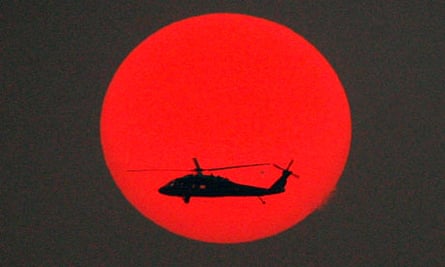
After a sleepless night on the floor in a corridor at Basra airport, Sky hitched a lift on a US Hercules transport plane to Baghdad, and then a military bus into the Republican Palace in the Green Zone. This had become the headquarters of the Coalition Provisional Authority (CPA) which was supposed to be restoring order to the country.
She tracked down and introduced herself to Sir John Sawers, who was the UK's special envoy to Iraq, (and is now head of MI6) and spent a week helping out until a proper role was found for her. Life inside the palace was bizarre. "Stately rooms had become dormitories reminiscent of wartime hospitals. At times we showered in mineral water and some days even the floors were washed with mineral water."
Their dirty laundry was flown to Kuwait for cleaning, and engineers spent days trying to decapitate the four giant heads of Saddam Hussein, which leered from the palace ceilings. Sky says she adapted more easily than most, thanks to her "years at an all boys' English boarding school that had honed a wide range of survival instincts which proved most useful in the jungle".
A few days after arriving, she decided to escape into downtown Baghdad on her own – the kind of trip that was already strictly forbidden. She found herself chatting to a man selling cigarettes from a trolley. "I talked to him, he was in his 50s. He said to me 'it's a Hobbesian world'. And I was thinking, how does he know about Hobbes? He was referring to all the looting. Iraqis were taking revenge on the state that had controlled their lives for so long." From the start nothing was quite as it seemed.
Under the leadership of the US diplomat Paul Bremer, the CPA was tasked with reforming and reconstructing the country; but it was always going to struggle, especially in the regions away from Baghdad, where it had fewer people.
Sky was told to fly to northern Iraq because the CPA was short of staff in Erbil, but when she arrived, the posts were already filled, and she was directed to Kirkuk. "They said, 'we've nobody in Kirkuk, so go there'."
On the border of the autonomous Kurdish area, and 150 miles north of Baghdad, Kirkuk is an ancient, oil-rich city, with tribal rivalries that date back to the Ottoman Empire.
And so this 35-year-old Oxford graduate who had almost fallen out of the Black Hawk helicopter that took her to the city for the first time ("I couldn't get my harness on and I couldn't understand why they'd left the door open") became the governate co-ordinator of this restive area. She reported directly to ambassador Bremer.
In the days before she took up her new post, he invited her to join him on a short tour of the north, which included dinner with the Kurdish leader, Masoud Barzani, in the town of Sari Rash. During the meal, Bremer spoke about America's 4 July Independence Day, which was the next day, and then he turned to Sky for a comment. "I managed to say something about wishing all our former colonies the same success as America. I wondered, how on Earth have I got here? How on Earth had someone like me, a British liberal, become part of a US-led invasion that I had opposed?"
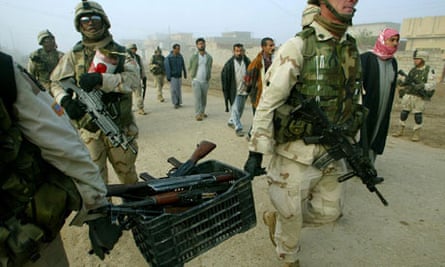
Welcome to Kirkuk
From the airport in Kirkuk, Sky was taken to modern villa near the centre of the city, a base she was supposed to share with a group of American contractors and engineers. But within days, this idea looked a trifle optimistic, as did any notion that a new Iraq would emerge easily from the shadow of the old.
"We received intelligence that the house might be targeted," said Sky. "We had to turn the lights out at dusk and we slept fully clothed away from the windows. On my fifth night, five mortars were fired at the house. The noise was deafening and seemed to be coming from all sides. We were under attack. I struggled into my body armour and ran down to the safest part of the building where the others were already huddled. We sat in the darkness for what seemed like hours."
Most of the staff abandoned the villa the following day, but Sky decided to stay. Two nights later, the house was attacked again by gunmen who appeared determined to storm the building. "I woke to the sound of automatic gunfire followed by massive explosions. Dust poured in through the sandbags. I curled up in a ball in bed with my hands over my ears, paralysed by the sound. The attack lasted half an hour … it was only when it was over that I discovered that four rocket propelled grenades had been fired at the house, and one had entered a couple of metres from my bed."
The private security guards who tried to defend the house believed it was too vulnerable, so Sky accepted the offer of a bunk on the airfield in a US airforce tent, which she shared with seven men. This required her to become expert in the military's "three-minute showers (30 seconds to soap, two and a half minutes to rinse).
Narrowly avoiding death within her first week was an inauspicious start to her governorship, and the task ahead remained unclear. This was underlined to her a few days later when Sawers arrived in Kirkuk on his farewell tour of the country. He invited Sky to join his entourage, and during the trip, she sought his advice. "His parting advice to me was to become a trusted partner to all groups and to get to know the Turkmen," she said. "And that, in essence, was as far as guidance from CPA went in the early months."
With few staff of her own, no orders from Baghdad, and reliant on the US military for protection, Sky concluded there was only one way to get anything done. She would have to work with the 3,500 soldiers of the 173rd Airborne Brigade who were based on the outskirts of the city.
"I was a British civilian volunteer who had arrived accidentally in Kirkuk. I looked around and decided to work closely with the military. They were the ones with the power, with the resources, with the bureaucracy. I could spend all my time watching what they do and reporting back on all their mistakes, or I could look at how to work with them. So I rolled up my sleeves, knuckled down. I learned the rank structure, the handshakes, the jokes, the code."
Sky did this with some trepidation – she had never worked with the military before – and some of those she spoke to at first did their best to confirm her fears. One American officer told her working in Iraq was "like being on Planet of the Apes". And she heard soldiers referring to Iraqis as "haji", which is an honorific in Arabic, but was being used in a derogatory way, as a racial slur. Some mocked the Iraqi people for living in mud huts, wearing "man dresses" and giving "man kisses".
"They had come into contact with an ancient civilisation with people who knew their lineage back through centuries, who had survived under the harshest of dictatorships. They did not understand the people they were dealing with." Sometimes offence was caused unwittingly. In one effort to foster relations with community leaders, the US air force invited a group of dignitaries to a military entertainment show. The "tops and stripes" evening included a mildly racy dance involving women flipping up their skirts. The guests walked out, quickly followed by Sky, who assured them that no offence had been intended.
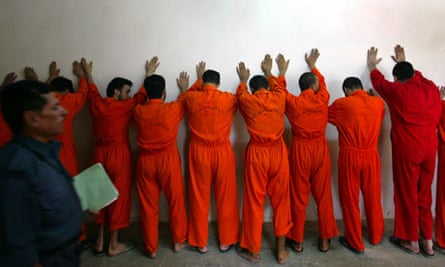
Sky set about learning the history of Kirkuk and ventured out into the city, in her soft-topped car, to speak to people about their problems. The military seemed genuinely perplexed that Iraqis seemed so hostile. "The brigade viewed themselves as liberators and were angry that Iraqis were not more grateful. One of the questions put to me was, 'what do we need to do to be loved?' I told them that people who invaded other peoples' countries, and killed people who were no threat to them, would never be loved. I said that after the first Gulf war which killed 100,000 Iraqis, a decade of sanctions with the devastating effects on health, education and economy, and the humiliating defeat of the second Gulf war, I could well understand why Iraqis were shooting at us."
Sky found an unlikely kindred spirit in Colonel William Mayville, the brigade commander with a cowboy swagger. They shared the same goal – to help Kirkuk get on its feet so the military could withdraw. And he also believed – wrongly – her presence heralded the arrival of an army of civilians that would enable his brigade to go home. One of the US military's rising stars, Mayville loved listening to opera and had a team of highly educated officers – all of which came as a surprise to Sky. As did their willingness to listen to this opinionated Englishwoman who had appeared in their midst.
The restless natives
Sky was included in all classified "battle update briefs" about security operations, and discussions about what the military should be doing next. When she arrived in Kirkuk, the military was running everything in the city. But that was part of the problem. Sky said success should be defined as Kirkukis running their own affairs: the job of the coalition was not to do it for them, but to help them do it themselves.
She and Mayville formed "team government" – a military and civilian partnership, developing ideas that were later reflected in America's new counter-insurgency strategy. They established the Kirkuk Development Commission to kickstart the local economy. And they also encouraged Iraqis to register any complaints they had about the coalition, including damage done to property during raids.
The two shared an office on the first floor of an old government building in the city centre. "Every day, there were long queues outside our door, with Kirkukis wanting to tell us about weapons of mass destruction or sightings of Saddam. Others were asking for jobs or complaining about services. It was madness," said Sky.
Among the myriad issues were two that were intertwined; the property claims of 250,000 Kurds who had been expelled from their homes in the city during the 1970s – when Saddam Hussein set out to "arabise" Kirkuk by moving hundreds of families there from the south. The second issue was whether Kirkuk should secede from Iraq and become part of the Kurdish enclave in the north.
Sky urged the CPA to give Kirkuk special status because of its unique make-up; she met the US secretary of state, Colin Powell, and the US deputy defence secretary, Paul Wolfowitz, when they made flying visits to the city. She argued Kirkuk needed to be exempted from the rush to Iraqi governance the CPA was demanding in other areas. On 19 September 2003, Sky was summoned to a meeting in Baghdad with Bremer and his deputy, the British diplomat Sir Jeremy Greenstock.
Her idea, she says, "was torpedoed" because of concerns that a precedent might be set. Bremer promised Sky that Kirkuk would be treated as a priority – but it wasn't, because there were so many other priorities.
Sky didn't find any mourning for Saddam, but she sensed growing anger about decisions taken in Baghdad that had dire consequences on the ground. "I had arrived ready to apologise to every Iraqi for the war. Instead I had listened to a litany of suffering and pain under Saddam for which I was quite unprepared. The mass graves, the details of torture, the bureaucratisation of abuse. The pure banality of evil. But the Iraqis also had huge expectations of the US. After every war Saddam rebuilt the country in six months, so their attitude was, 'imagine what the US can do after six months. America can put a man on the moon … you wait'."
Sky admits the CPA simply could not meet these expectations and no amount of hard work from many experienced British and American volunteers could make up for the lack of planning before the invasion. It left the CPA – which was assembled in haste and from scratch – attempting to restore public services, disband the security forces and build new ones, as well as introduce a free market and democracy. "No organisation would have been able to implement such an agenda, particularly without the consent of the population. Those in Baghdad struggled to cope with the daily crises, whilst those in the provinces were often left to their own devices. Some Americans believed Iraq could become a democracy that would serve as a model for the region. Most Iraqis had not consented to this experiment, or to being occupied by foreign forces."
Driven on by "zealous Iraqi exiles who had no proper constituency", Sky says some senior members of the CPA and the US government seemed to see Iraq as "an experiment, an incubator for bringing in democracy".
One of the most contentious CPA orders involved the "de-Ba'athification" of society. This demanded that any member of Saddam's Ba'ath party at grade four level and above should be dismissed, regardless of whether there was any evidence of actual complicity in crimes. Thousands of professional people in Kirkuk lost their jobs at a stroke – including teachers and doctors.
"Demonising the Ba'ath party to this degree was dangerous," said Sky. "The whole process hit us very, very hard. It did not affect all communities evenly. Some Sunni areas ended up with no doctors in their hospitals and no teachers in their schools. What did the coalition really know about Iraq? Nothing. De-Ba'athification was based on de-Nazification. It didn't bring catharsis, or justice. It became highly politicised and brought more and more anger. Everybody who had stayed in Iraq had, in order to survive, become complicit to some way with the regime. But instead of saying we have all suffered, and let's talk about how we deal with the past, this pitted people against each other. De-Ba'athification became a witch-hunt. I don't think any society could have withstood what we did to it in terms of disbanding the security forces and sacking its civil servants."
Sky said the brigade started to become "contemptuous of the CPA and its lack of clear policies and obstruction of their work. Their experiences of Iraq led the military to regard most civilians and their agencies as largely incompetent and impotent".
A fresh insurgency
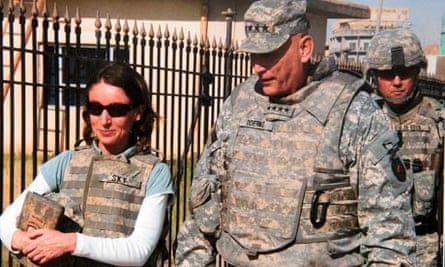
Sky realised many local Sunni Arabs were joining an emerging insurgency because they felt excluded from the Shia-led Iraq. "Iraqis felt humiliated by the presence of foreign troops on their soil. Right from the outset, there was resistance from former regime members as well as foreign fighters who entered the country to fight jihad. But it was the de-Ba'athication and dissolving of the military that led many Sunnis to believe that there was no future for them and to oppose the coalition as well as the Iraqi leaders they had put in power."
The US commander in overall charge of the Kirkuk region, Major General Ray Odierno, issued an amnesty to teachers and doctors caught up in de-Ba'athification in an attempt to defuse the issue. But Baghdad controlled the payroll and cut them off.
A mix of resentments and fears fuelled violence to a level nobody had foreseen. "The US military was not trained or prepared to deal with such a situation and they met violence with violence. There were continuous raids and mass round-ups of military-aged males. There were no suitable facilities to hold the detainees, nor systems to process them, and many became radicalised in detention." Worst of all, she says, was the evidence that US soldiers were abusing detainees in Abu Ghraib prison.
Kirkuk did not escape the bloodshed, and its victims included community leaders Sky had encouraged to help her shape the city's new landscape. "I had worked in places overseas for a long time, but I had not worked with people who had been killed, or had been killed because of their relationship with me. I spent a lot of time with the provincial council and about a quarter of the people on council were killed. There was always that sense that we had come into their lives and said, 'who is going to stand up and serve their province?', and they had come forward, and some of them had been killed. If we had never come into their lives that would never have happened. Some were killed because they stood forward to join the council, some were killed because they were seen as close to the coalition. I can still see their faces, I remember going to their funerals, speaking to their kids."
By February 2004, Sky had returned to work at the CPA's headquarters in Baghdad, where life had become even more stressful for its staff. The number of attacks on the Green Zone had reached such a level that people had stopped running to the shelters when the siren sounded – and the siren didn't always sound.
Beyond the wire and thick bomb-resistant walls, fliers were appearing all over the capital denouncing the occupation. "Everyone was working incredibly hard but I wasn't convinced we knew who we were fighting, or why they were fighting." One man who knew that Sky brought a different perspective on Iraq was Odierno, who had a fearsome reputation as an "old school" soldier.
He had watched Sky reaching out to people in Kirkuk and liked the way she worked with the 173rd Airborne Brigade. In almost all respects, Sky and Odierno were different; she is diminutive, precise and controlled. Shaven-headed and muscular, Odierno is a giant, whose military call sign was Iron Horse. He and Sky developed a rapport that became as important as it was unlikely. "Odierno never questioned why one of his commanders had brought in a British civilian woman into an American brigade. I found him honest, straightforward and direct. Whenever he arrived in Kirkuk, we felt a huge sense of relief. He always gave us support and asked how he could help. And he always asked my opinion about why the violence was happening. I think he recognised the solutions were not simply military ones."
When Odierno returned to Iraq two and a half years later to lead US forces during "the surge", the general decided he needed more than military might to stop Iraq's vicious civil war. He asked Sky to join his team.
On Monday: How Sky returned to Iraq as a political advisor to the US general in charge of the surge. To be notified when this next instalment will be published online, please email follow.up@guardian.co.uk
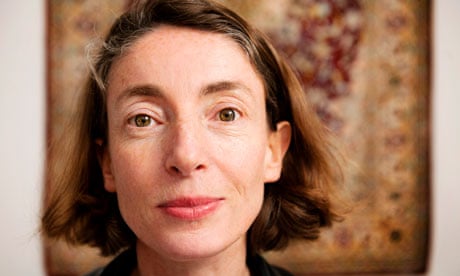

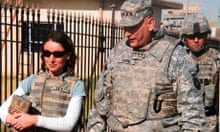
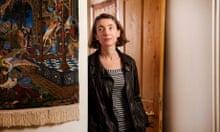
Comments (…)
Sign in or create your Guardian account to join the discussion